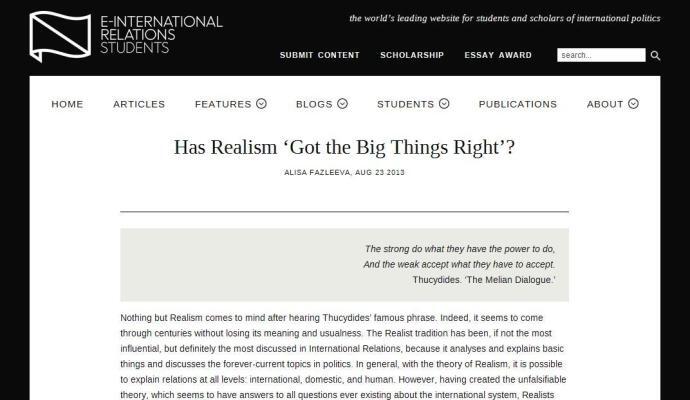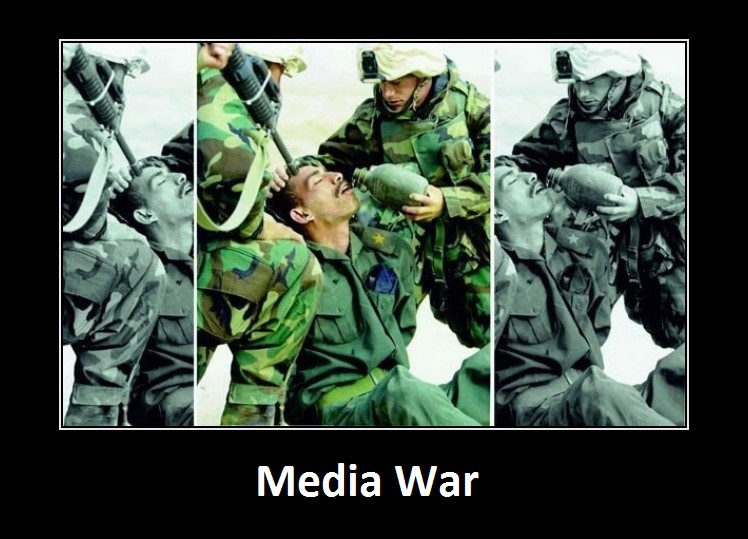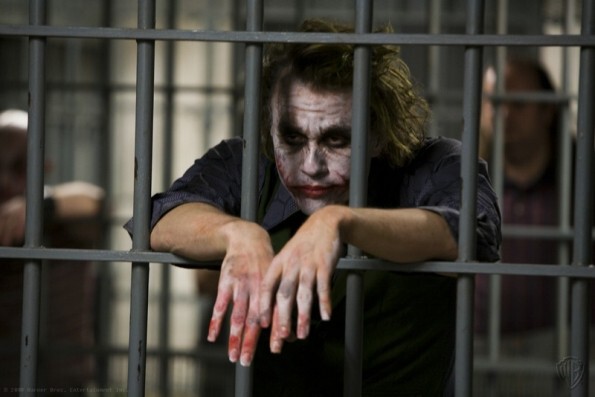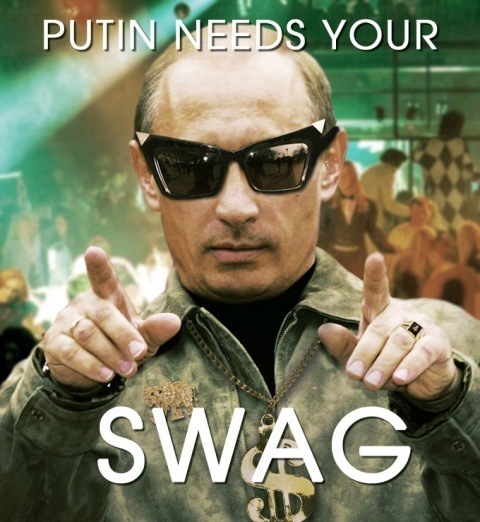Being a master in International Relations does not clear up in the head what politics is truly about. Although various intertwines and peripeteias have somehow become easier to recognize, it is still hard to set and keep your personal “objective” opinion… even trying to stir and put, say, “The Economist”, Novaya Gazeta and “Russia Today” in the daily menu.
Being variously educated people, we keep looking at the world events through what our local media is telling us, not to mention our own convictions, passions, offenses and “objectivity”. For this reason there exist diverse theories of International Relations (like Liberalism, Realism, Colonialism…) – so that we could calmly fit our complexes into one of them.

I remember once in England, at a class of Public Management, my classmate from Norway and I were debating about purposes and aims of international organizations. While my Scandinavian fellow was trying to convince me that all members of organizations are actually equal and the majority of modern establishments pursue liberal ideas, I was arguing that international institutions in their essence have selfish motivations and are directed by their strongest members’ interests. And no compromise so far. During that fascinating discussion our third fellow (British) asked, if our views were actually a result of our background and our motherlands’ policies and ideology. Correct. While Russia is not a democracy (in neither domestic affairs, nor foreign policy), my mind was unable to completely reject the idea of predominance of global conspiracy and states’ self-interests on the international arena.
This world of corruption, everyday disrespect to ordinary people, lack of care of the vulnerable category of the Russian citizens, my own lack of faith in progressive political changes in the country made me a Realist. The way International Relations understand this theory can be found in my published essay on Realism. I am sure that all readers with the rational turn of mind would appreciate this theory, as it explains more than just relations between states, but also the most subtle relations between humans.

Realizing what theory you stick to is understanding your views and the rules according to which you actually live. International reflects personal on a larger scale. Start to study the international science, and you will see yourself under the microscope.
However, a person, whichever their background it, cannot claim for political awareness if he or she sticks to only one idea, be it a barbie-pink belief in social freedoms, or blind patriotism, or cynical rationalism. It is essential to turn to interdisciplinary research to catch at least a glimpse of a true objectivity. We live in the age of a strong information war – when every single device in the world can be controlled and adjusted so that to represent you what they want you to see and know. Living in the era of advanced information technologies and blurred borders, we feel freedom. In fact, we have never been so strongly enslaved than nowadays.

Do not dive into political debates, especially if your only arguments base on official sources of information. Be doubtful in everything you hear. Look for independent bloggers and listen to people who write what they see – this is what I tell myself every day.
I did not want to mention my current views of Russian policy-making (not because I am afraid to be caught by FSB and be repressed though I probably should), I will just mention that, to my mind, a genuine patriotism lies in looking further than your own country. And real care goes beyond blind love. Since we all exist in comparison and opposition to each other (as Constructivism wisely states and what I truly believe in), the government machine highly needs to start to compare. And realize that we all are dying, and we are going to die.

Why so disappointed?
For a while, I’ve been thinking about soft power: what it is and how important it is. Soft power is the primary thing which helps countries survive – it embraces ideology, education, social moods, culture and awareness of self. If I, as my Norwegian classmate, were originally somewhere from Scandinavia, I would indeed sincerely believe in democracy and liberty. Or if I were Italian, I would come back to my motherland each time there were elections, even if I lived abroad, – just to vote for the future of my country. But you know what? A lot of people in Russia do not vote at all – they are deeply convinced that they cannot influence the course of events and everything is already predetermined – better to continue living the yesterday life and not to bother the tired mind with useless thoughts… We have not formed a civil position yet, and our beloved state does everything to prevent it. And no wonder, Russia has no ideology, no developed soft power. The Soviet Union collapsed over 20 years ago and we proudly proclaimed democracy. What we have now is an authoritarian liberty which cannot free itself from numb bureaucracy and cosmic corruption. Of course, I do blame the government – they have chosen the path of least resistance and support people’s authoritarian mindset and political illiteracy with every initiative they issue. However, are they the only ones to blame? Our authorities are a “random sample” taken from the nation, they are a reflection of our own consciousness.

Do I believe in ourselves? Can we actually stand democracy? So far we cannot, we are not ready. Do we need it? I doubt that. We are full of authoritarian consciousness. We are not tolerant to other people’s points of view and their solutions, we tolerate only ourselves. Take several people sticking to one dogma, and they will build an ultraauthoritarian state (or a totalitarian one if their ideas coincide).
But it is always up to us. As a shy start, it would be great to finally reject Soviet-style rudeness in communication, start respecting random people as individuals, accept pluralism and start treating the world around as Your life, not some stream of things happening around. Start being equal in the eyes of each other. This is how transformation from Realism to Constructivism actually happens.
No man is an Iland, intire of it selfe; every man is a peece of the Continent, a part of the maine; if a Clod bee washed away by the Sea, Europe is the lesse, as well as if a Promontorie were, as well as if a Mannor of thy friends or of thine owne were; any mans death diminishes me, because I am involved in Mankinde; And therefore never send to know for whom the bell tolls; It tolls for thee. John Donne
Sincerely,
Alisa Abramova (written when she was Fazleeva)
Recent
Alisa Abramova, a Chaos Manager
One Morning in London: A Cucumber, a Rubber Rat, and Whatever May Happen
I do meet interesting people! Notes from Dubai
Beauty, Inspiration, and a City Reaching for the Sky: A Hong Kong Travel Guide
Explore Ocean Park Hong Kong: Pandas, Sharks & Environmental Education
SimBIOsi Restaurant in Florence
Place: Sea You Beach Bar in Paphos. Shells, Coconuts and XXL Crepes